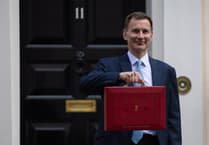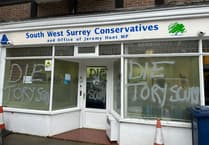A couple of weeks ago I wrote a piece for this paper on food security and the need to safeguard our domestic food production in challenging times. However, ‘food insecurity’ means something quite different, writes David Podger of Petersfield Liberal Democrats.
Food insecurity is a relatively new term used to describe the numbers of people who struggle to get the food they need because of lack of money or access. It has been formally adopted by the UK Food Standards agency as a measurement, although to many it is best understood as food poverty.
The Food Foundation has been commissioning a series of nationally-representative surveys since the outbreak of the Covid pandemic in March 2020 to assess the impact of household food insecurity across the UK.
It tracks and reports on the experiences of food insecurity, particularly focusing on specific high-risk groups such as families with children, ethnic groups, people with disabilities and people on benefits.
Its latest published survey from September 2022 makes for sobering reading.
The research, conducted independently by YouGov, asked more than 4,500 people from across the UK three questions to assess whether they were food insecure. If they answered yes to any of these three questions, they were classified as food insecure.
The questions were: Have you or anyone else in your household:
1Had smaller meals than usual or skip meals because you couldn’t afford or get access to food?
2Ever been hungry but not eaten because you couldn’t afford or get access to food?
3Not eaten for a whole day because you couldn’t afford or get access to food?”
The survey revealed one in four households with children (four million children) had experienced food insecurity and 9.7 million adults (18.4 per cent of households) had experienced food insecurity in that month.
Those on Universal Credit were among the worst affected, with more than 50 per cent reporting food insecurity.
Let’s just make that clearer for those who might find statistics a bit impersonal. These people cannot afford to eat.
The Trussell Trust, responsible for more than 1,300 food banks across the country, is campaigning to help ensure everyone can afford life’s essentials.
Universal Credit should, as a minimum, offer enough support to those in need of help. Today, 90 per cent of low-income households receiving Universal Credit are going without at least one essential like food, a warm home or toiletries.
In Petersfield, the food bank has seen an alarming increase in demand for its services. In 2022 it issued 1,277 food packs, helping 1,939 adults and 1,016 children, compared with 2019 when it issued 310 packs helping 497 adults and 210 children.
Sorry for more statistics, but I make that a 411 per cent increase.
And this when Conservative Party deputy leader Lee Anderson claimed in parliament last year that food banks are largely unnecessary because the main cause of food poverty is a lack of cooking and budgetary skills.
He went on to say: “I think you’ll see first-hand there’s not this massive use for food banks in this country.”
Mr Anderson is popular among grassroot Conservative Party members and was voted favourite backbench MP of 2022 in a survey by Conservative Home, which promotes itself as ‘Britain’s leading independent conservative news and analysis site’.
Whether you consider yourself a Conservative or not, I’m sure you will share my disquiet that we are living in a country where children are going hungry.
Simplistic bombast and headline-grabbing soundbites of the sort favoured by Lee Anderson are not going to help put that right.




